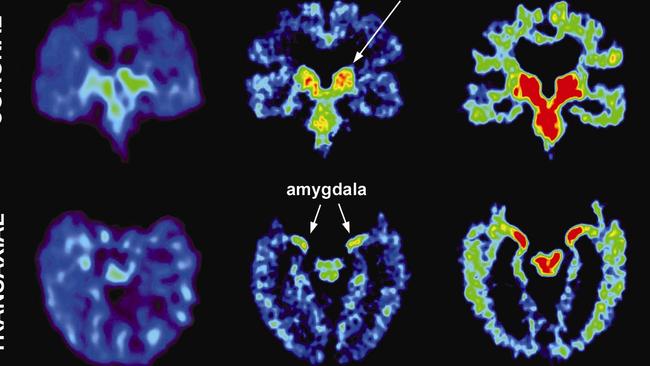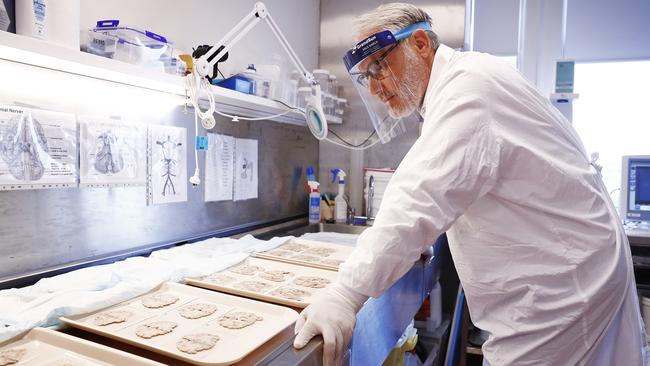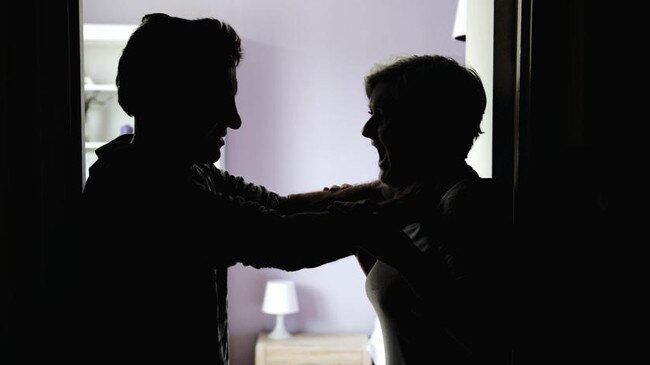‘Shocking’: CTE found in two domestic violence victims for first time in Australia
Two women who endured decades of brutal abuse have been diagnosed with a disease commonly found in deceased male football players.

Illness
Don't miss out on the headlines from Illness. Followed categories will be added to My News.
Two women who endured decades of brutal intimate partner abuse have been diagnosed with a neurodegenerative disease commonly found in deceased male football players and boxers.
After suffering countless horrific assaults and head injuries, the women are the first cases of chronic traumatic encephalopathy (CTE) to be found in Australian domestic violence victims, according to research published on Monday in the Acta Neuropathologica journal.
The women are two of just a handful of such cases worldwide.
The disease, attributed to the cumulative harm of repetitive head injuries, was first identified as “punch-drunk syndrome” in boxers in the 1920s.
Symptoms can include memory loss and confusion, poor impulse control, severe depression and suicidality – though some patients seemingly show no signs of illness at all. CTE can only be diagnosed post-mortem.
The women, aged in their 30s and 40s, died of an alleged assault and impact trauma (being struck by a car) respectively. The two had at least 70 assault-related medical presentations and 35 documented domestic violence-related head injuries between them.
After reviewing their clinical records and examining their brains, a team of pathologists from across Australia diagnosed both with mild CTE – one with stage 1, the other, stage II.


While it’s the earliest, mildest form of the disease, the study’s co-author, Dr Michael Buckland, said the findings were still a shock.
“I was most shocked that in a first-world country with a strong public health system that these sorts of histories of chronic intimate partner violence (IPV) could be found,” Dr Buckland, who is Head of the Department of Neuropathology at Sydney’s Royal Prince Alfred Hospital and director of the Australian Sports Brain Bank, told news.com.au.
The progressive brain disease was first linked with domestic violence in 1990, in a 76-year-old British woman who had been abused by her husband for years and had a history of stroke and dementia.
Only two other cases have been documented since: in 2021, in a 29-year-old Colorado woman who was killed by her fiance after years of abuse; and last year, in a 69-year-old Californian woman who suffered decades of assault at the hands of her husband.
Although CTE is likely to be found in only the most extreme examples of domestic violence, the findings out of Australia show head trauma in victim-survivors is still hugely under-researched and under-recognised, despite evidence suggesting the cohort sustain such injuries at higher rates than athletes and military personnel combined.
“While we don’t have exact statistics around the prevalence of brain injury in victim-survivors compared to what we have in sports – in part due to a lack of awareness of these injuries in this setting, or victim-survivors not receiving medical attention – the estimates of brain injury in IPV likely far outnumber those in sports,” Monash University’s Dr Georgia Symons told news.com.au.
Dr Symons, who has previous research expertise in sports-related concussion, is currently researching the neurological consequences of brain injury and non-fatal strangulation in women who have experienced IPV, using blood biomarkers, MRI and PET scans, and cognitive assessments.
These brain injuries are “unique” compared to those in sporting settings, Dr Symons explained, for a number of reasons.
One is that, unlike in football, there is no mandatory rest period after a victim-survivor suffers a blow to the head.
There is also often a lack of medical attention, Dr Symons said, and “repeated injuries within a short time frame can be common, which may result in cumulative damages”.

CEO of domestic and family violence organisation, Women’s Community Shelters, Annabelle Daniel, said the research was “absolutely groundbreaking” for victim-survivors.
“Women’s Community Shelters has previously supported women who have experienced brain injuries as a result of domestic and family violence,” Ms Daniel said.
“Women are often doubly penalised for this brain injury, as it can impair their perception and cognitive function.”
Today’s findings, Dr Symons agreed, are “significant and will help bring attention to this issue, which is needed”.
“I think more research is needed to better characterise the neurological consequences of brain injury in intimate partner violence and how it relates to CTE,” she added.
“If we look at how public awareness of concussions in sports has grown in the last 10 years, with the increased research and media attention for brain injuries associated with violence, hopefully, this societal awareness will grow in a similar way.”
Originally published as ‘Shocking’: CTE found in two domestic violence victims for first time in Australia





